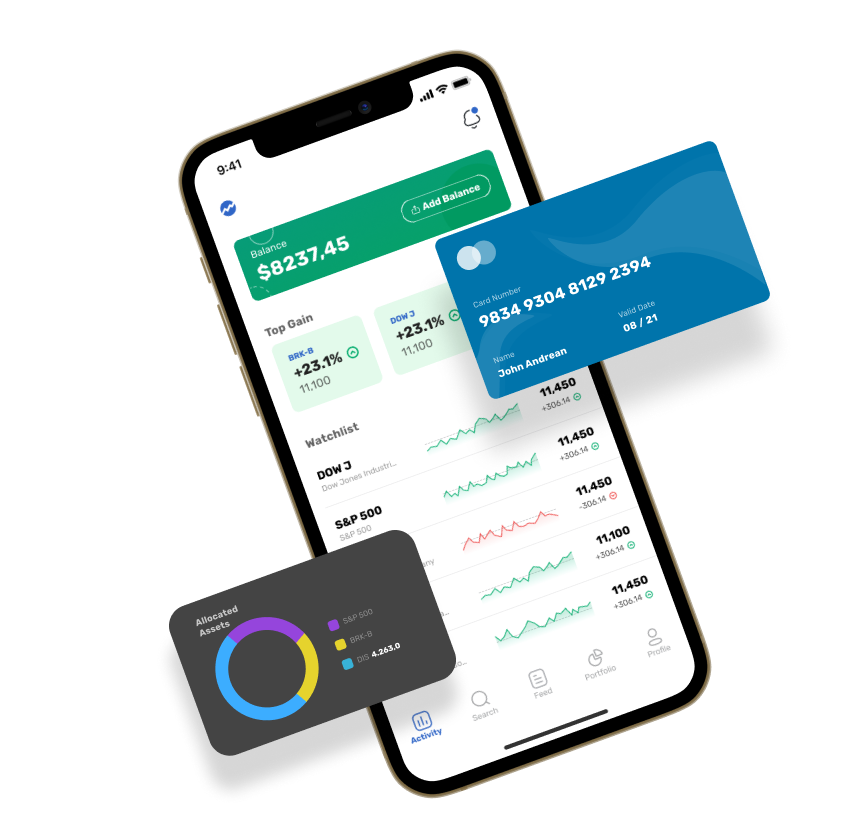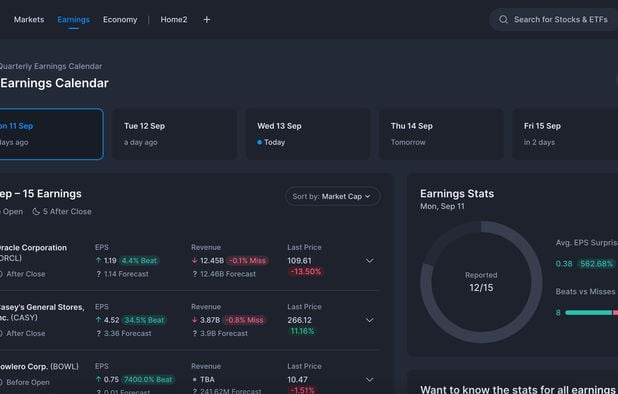20 Recommended News To Deciding On AI Stock Trading Analysis Websites
20 Recommended News To Deciding On AI Stock Trading Analysis Websites
Blog Article
Top 10 Tips On Assessing The Customer Support Of Ai Platform For Predicting/Analyzing Trades
Support for customers is an essential factor when choosing the best AI stock predicting/analyzing trading platform. Reliable, responsive support can make a big difference on resolving any issues, maximizing the platform's usage, and ensuring that trading goes effortless. Here are our top 10 tips about how to assess customer support on these platforms.
1. Review Support Review Support
24/7 support: Verify if your platform offers support around-the clock, which is important for real-time trading and global markets.
Hours of operation: If 24/7 support is not available, make sure that support is accessible during your business hours.
Coverage for holidays: Check to see if you can get assistance during holidays, weekends and closings of markets.
2. Test Response Times
Initial response: Contact support with an initial query to see the speed at which they respond.
Time to solve: Do not simply admit the issue, but also determine how long it will take to solve it.
Live chat: Check the effectiveness and responsiveness of the live chat system.
3. Assess Support Options
Multi-channel support: Make sure the platform supports you via various channels (e.g. email telephone call, email live chat, email, or social media).
The preferred channel: Make sure that your preferred support channel (e.g. phone, email or chat) is available and trustworthy.
Self-service solutions: For quick solutions to problems, check out complete knowledge bases, FAQs or community forums.
4. Evaluation of Quality of Support
Expertise: Support staff must be familiar with the platform and issues related to trading.
Problem-solving: Determine whether agents are able to effectively solve complex problems or escalate them when appropriate.
Professionalism: Check if support interactions are friendly professional, efficient and friendly.
5. Look for Account Managers who are Dedicated
Support Premium: Verify if institutions or higher-tiered plans have access to account managers.
Check if your account manager offers individualized support and proactive guidance.
Relationship Building: Make sure that the account managers you work with are available at all times. It is also possible to build relationships over time.
6. Review Support Documentation
Knowledge base - Make sure that the platform offers searchable and well-organized knowledge base with tutorials. guides, and tips for troubleshooting.
Video tutorials: Check if the platform offers webinars or video tutorials to help visual learners.
API documentation. API documents are important to developers.
7. Evaluate Peer and Community Support
Forums for users: Check whether the platform has a community or forum for users to share their tips and suggestions.
Search for groups on social media that aren't officially sanctioned (e.g. Reddit or Facebook). These groups allow users to discuss the platform.
Community engagement: Verify if the platform's team actively participates in community discussions or forums.
8. Evaluate Escalation Processes
Issue escalate. Make sure you have a clear process to escalate cases that are not resolved through the support chain, or even management.
Follow-up: Make sure that support is available after the resolution of an issue to confirm that the issue has been solved.
Feedback loop: Check whether the platform gathers feedback from users to improve support service.
9. Test Support in critical situations
Contact customer support during times of high-volatility and find out how they react.
Issues with technical aspects: To see the way support can handle the specific issue (e.g. log-in issues or data discrepancy) You can simulate a problem.
Trade execution: Verify whether support can help with urgent issues related to trade (e.g., failed orders, delays in execution).
Look through User Feedback for support
Reviews on the internet: Make use of platforms like copyright G2 or Reddit to read user reviews and measure the overall satisfaction.
Search for testimonials and case studies which highlight positive experiences.
Check the platform to see the way it handles complaints, negative feedback and support.
Bonus Tips
Trial period support: Test the platform's support during the free trial or demo time to evaluate the quality of support.
Support for your language: If English is not your first language, you should check to see if it's available.
Onboarding and training: Find out if there are any onboarding sessions that can assist new users in getting started.
The following tips can assist you in evaluating the quality of customer service provided by AI trading platforms which predict or analyze price fluctuations in stocks. Then, you will be able to choose a trading platform that provides prompt, reliable, and helpful customer support. Support from the customer that is prompt and helpful can help improve your overall experience. See the best best ai trading software info for more info including ai investing platform, ai investing app, best ai trading app, options ai, ai trading tools, ai trade, incite, best ai trading app, ai trading tools, ai for trading and more.
Top 10 Tips For Evaluating The Scaleability Ai Platform For Predicting/Analyzing Trade Platforms
Scalability is an important aspect in determining if AI-driven platforms for stock prediction and trading can handle growing demand from users, increasing data volumes and market complexity. Here are the top 10 suggestions on how to evaluate the scalability.
1. Evaluate Data Handling Capacity
TIP: Make sure that the platform you're considering is able to handle and process large amounts of data.
Why: Scalable platform must be capable of handling the ever-growing volumes of data with no degradation in performance.
2. Test Real-Time Processing Ability
See the way the platform handles real-time streams of data, including news and stock prices.
Why: The real-time analysis of trading decisions is crucial, as delays can lead you to missing opportunities.
3. Check for Cloud Infrastructure and Elasticity
Tip: Determine if the platform makes use of cloud-based infrastructure, e.g. AWS or Google Cloud.
Why cloud platforms are so popular: They provide flexibility, allowing the system to increase or decrease its size based on demand.
4. Algorithm Efficiency
TIP: Check the computational efficiency (e.g. deep-learning or reinforcement-learning) of the AI models that are used to predict.
The reason: Complex algorithms can be resource-intensive. Making them more efficient is the key to scaling.
5. Study Parallel Processing and Distributed Computing
Find out if the platform uses parallel computing or distributed computing frameworks.
Why: These technologies allow faster data processing and analysis across multiple nodes.
Review API Integration.
Test the platform's ability to incorporate APIs from other sources.
What's the reason? Seamless integration enables the platform to be adapted to changing trading environments and data sources.
7. Analyze User Load Handling
To test the effectiveness of your system, try simulated high traffic.
Why: Performance of a platform that is scalable shouldn't be affected by the increase in users.
8. Evaluate the model's retraining and adaptability
Tip: Check how often the AI model is retrained and with what degree of efficiency.
The reason is that markets change and models must adapt quickly to maintain accuracy.
9. Check Fault Tolerance (Fault Tolerance) and Redundancy
Tips: Ensure that the platform is equipped with failover mechanisms to handle software or hardware failures.
Why is that downtime in trading can be expensive, and the ability to tolerate faults is essential for scaling.
10. Monitor Cost Efficiency
Review the costs involved in increasing the capacity of the platform. This includes cloud resources, data storage, as well as computational power.
Reason: Scalability should not result in an unsustainable price, so balancing performance and expense is essential.
Bonus Tip Future-Proofing
Platforms should be designed to incorporate new technologies such as quantum computing and advanced NLP. They must also adapt to regulatory change.
Concentrating on these aspects will help you evaluate the scalability AI software for stock prediction and trading and make sure they are durable and efficient, ready for future expansion. Follow the recommended best ai for stock trading advice for site advice including best ai penny stocks, ai stock prediction, ai copyright signals, stock trading ai, free ai tool for stock market india, stocks ai, ai trading tool, trading ai tool, ai in stock market, ai stock investing and more.